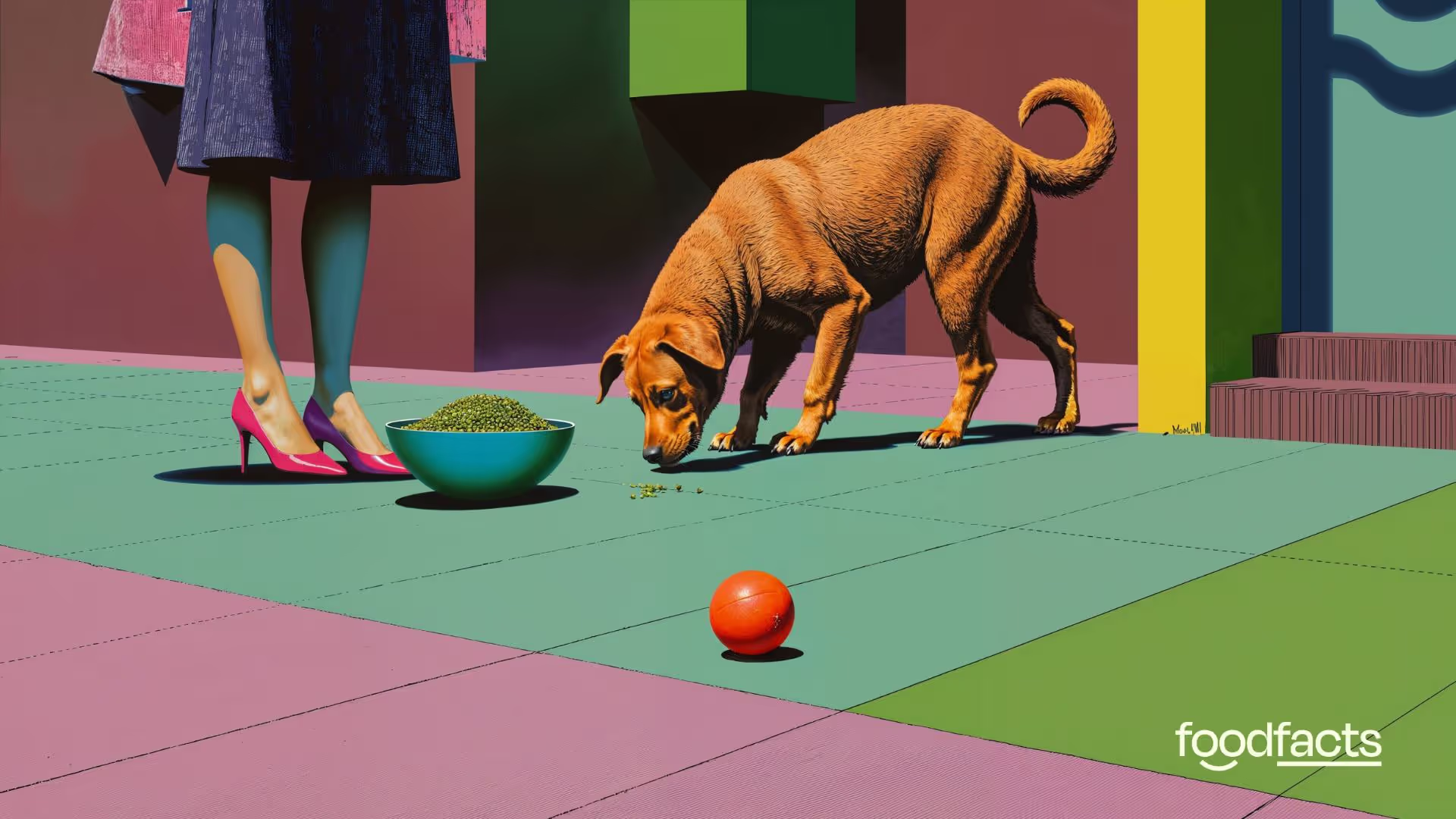
Are meat-based diets putting our dogs at risk? Exploring healthier, climate-friendly alternatives





Coral Red: Mostly False
Orange: Misleading
Yellow: Mostly True
Green: True
Learn more about our fact-checking policies
We all want our dogs to live long, healthy lives. Yet, rising rates of obesity, cancer, and chronic illness among pets suggest that something in their diet may be working against them. For many, the assumption has always been that dogs need meat to thrive—but emerging research is challenging this belief.
The Link Between Meat-Based Diets and Canine Health Issues
Today’s pet food industry is heavily focused on high-protein, meat-based diets. Marketing phrases like “biologically appropriate” and “ancestral diet” suggest that dogs should be eating like their wolf ancestors. But is this actually the healthiest choice?
Studies indicate that over 50% of dogs in the UK are overweight or obese, significantly increasing their risk for diabetes, arthritis, hypertension, kidney disease, and cancer. Research suggests that high-fat, meat-based diets play a significant role in this health crisis, especially when combined with modern dogs’ lower activity levels.
Cancer, now the leading cause of death in dogs, has also been linked to diet. One of the biggest concerns is bioaccumulation—the buildup of toxins in animals that are then passed along the food chain. When dogs consume meat, they may also be ingesting harmful substances, including preservatives, antibiotics, and environmental pollutants.
Are Dogs Really Carnivores? The Science Says No
One of the biggest myths about dog nutrition is that they are obligate carnivores, like cats. In reality, dogs are omnivores—capable of digesting and thriving on a balanced diet that includes plant-based foods.
Genetic research has revealed that dogs evolved key mutations that allow them to digest starches efficiently, a trait absent in their wolf ancestors. This suggests that dogs have adapted to a diet that includes more plant-based ingredients.
Do Plant-Based Diets Provide Complete Nutrition for Dogs?
A well-formulated, climate-friendly diet can meet all of a dog’s nutritional needs without the risks associated with processed meat-based pet food. Essential nutrients—including protein, amino acids, and vitamins—can all be provided through carefully designed plant-based pet foods. In fact, some studies suggest that dogs on plant-based diets may live longer and suffer from fewer chronic illnesses compared to their meat-fed counterparts.
Hidden Ingredients in Meat-Based Pet Food
Another concern with traditional pet food is the low-quality meat byproducts often used in commercial formulas. These can include:
✅ Rendered animal parts (bones, blood, and fat)
✅ Artificial preservatives and flavor enhancers
✅ Rancid fats, which can contribute to free radical damage linked to cancer
Meanwhile, raw meat diets, often promoted as “natural,” come with the risk of bacterial contamination, such as E. coli and Salmonella, potentially endangering both pets and their owners.
A Shift Towards Sustainable and Healthy Dog Food
The good news? A growing number of companies are creating nutritionally complete, plant-forward dog foods that provide all the necessary nutrients without the risks associated with meat. These foods are designed with lower fat content, higher fiber, and carefully balanced protein sources to support optimal health.
Dog owners who have made the switch often report benefits like:
✅ Healthier weight maintenance
✅ Reduced allergies and skin issues
✅ Increased energy and mobility
Looking Ahead: A Healthier Future for Dogs and the Planet
By reconsidering what we feed our pets, we’re not just making a healthier choice for them—we’re also reducing the environmental impact of pet food production. Meat-heavy pet foods contribute significantly to greenhouse gas emissions, deforestation, and water pollution. Choosing climate-friendly dog food options allows us to align pet care with a more sustainable food system.
As research continues to emerge, one thing is clear: Dogs can thrive on a well-balanced, plant-based diet. With a growing selection of carefully formulated, nutritionally complete options available, now may be the perfect time to explore a healthier, more sustainable way to feed our four-legged companions.
Would you consider transitioning your pet to a plant-forward diet?

📚 Sources
Knight, A., Bauer, A., & Brown, H.J. (2024). "Vegan versus meat-based dog food: Guardian-reported health outcomes in 2,536 dogs, after controlling for canine demographic factors." Heliyon, 10(17), e35578.
https://www.sciencedirect.com/science/article/pii/S240584402411609X
Knight, A., Huang, E., Rai, N., & Brown, H. (2022). "Vegan versus meat-based dog food: Guardian-reported indicators of health." PLoS ONE, 17(4), e0265662.
https://doi.org/10.1371/journal.pone.0265662
Knight, A., & Light, N. (2021). "The nutritional soundness of meat-based and plant-based pet foods." Revista Electronica De Veterinaria, 22(1), 1–21.
https://www.andrewknight.info/wp-content/uploads/2021/05/Pet-food-manufacturing-Knight-et-al-2021.pdf
University of Winchester (2024). "Vegan diets may be the healthiest to feed pet dogs, say researchers."
https://www.winchester.ac.uk/news-and-events/press-centre/media-articles/vegan-diets-may-be-the-healthiest-to-feed-pet-dogs-say-researchers.php
Plant Based News (2022). "Vegan food is healthier and safer for dogs than meat."
https://plantbasednews.org/lifestyle/health-and-fitness/vegan-food-healthy-dogs-major-new-study/
Your Pets Daily (2024). "Vegan diet for dogs can be healthier than meat, says new study."
https://www.yourpetsdaily.co.uk/article/2024/09/18/vegan-diet-dogs-can-be-healthier-meat-says-new-study
Pet Food Industry (2024). "Research reveals vegan diets can improve dog health."
https://www.petfoodindustry.com/nutrition/research-notes/news/15683496/research-reveals-vegan-diets-can-improve-dog-health
The Times (2025). "Turn your dog vegan to stop carbon emissions, expert says."
https://www.thetimes.co.uk/article/turn-your-dog-vegan-to-stop-carbon-emissions-expert-says-xngksjq02



Foodfacts.org is an independent non-profit fact-checking platform dedicated to exposing misinformation in the food industry. We provide transparent, science-based insights on nutrition, health, and environmental impacts, empowering consumers to make informed choices for a healthier society and planet.
🛡️ Stand Against Nutrition Misinformation
Misinformation is a growing threat to our health and planet. At FoodFacts.org, we're dedicated to exposing the truth behind misleading food narratives. But we can't do it without your support.
Your monthly donation can:
✅ Combat viral diet myths and corporate spin
✅ Support our team of dedicated fact-checkers and educators
✅ Keep our myth-busting platforms running

Was this article helpful?















.svg)
